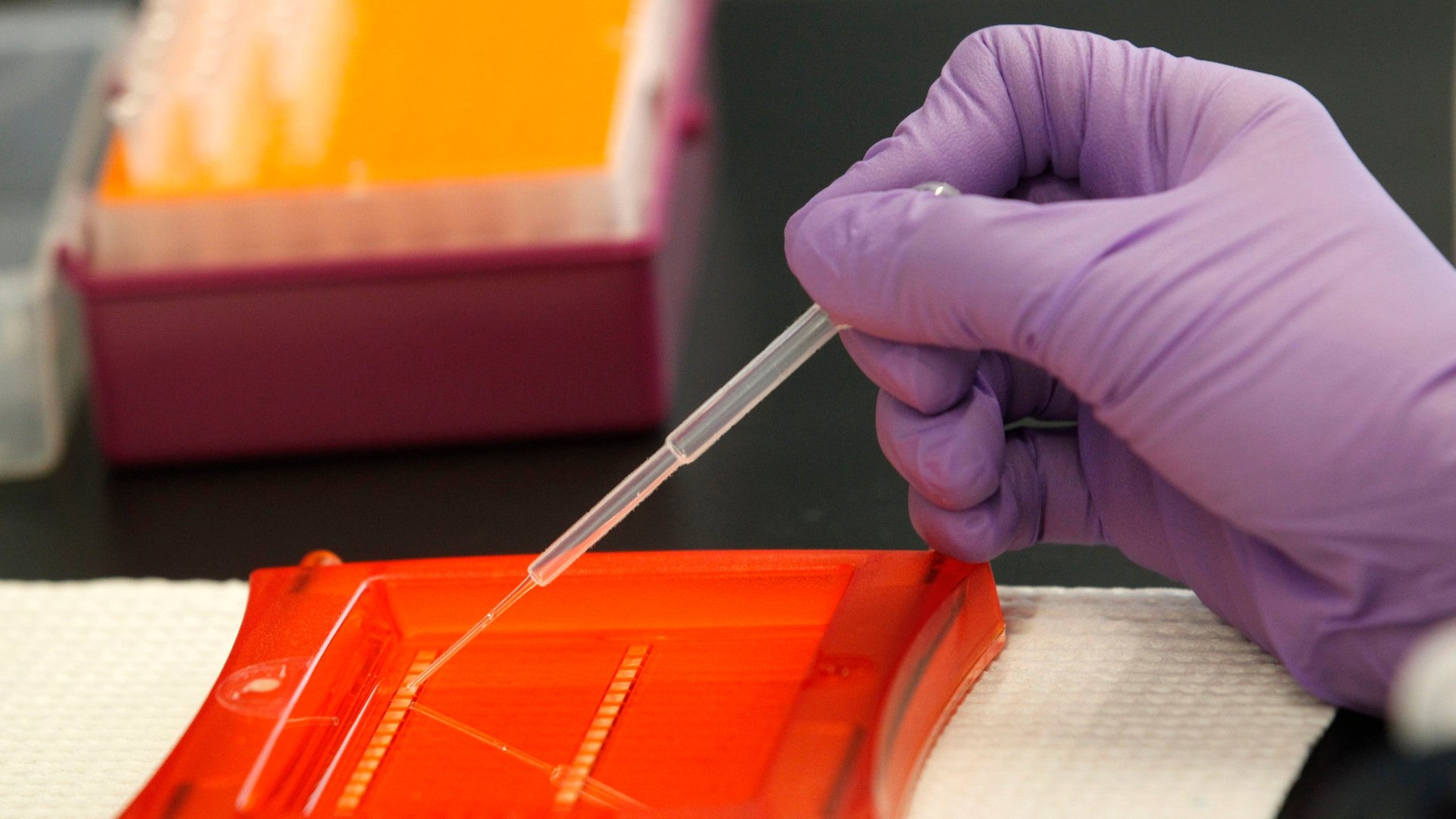23andMe’s problem isn’t the FDA—it’s that no one knows if it works
Let’s straighten a few things out. The US Food and Drug Administration’s decision this week to stop 23andMe from selling its home DNA testing kit was not an attempt to ban personal genomics.


Let’s straighten a few things out. The US Food and Drug Administration’s decision this week to stop 23andMe from selling its home DNA testing kit was not an attempt to ban personal genomics.
23andMe markets itself as a way to learn about your ancestry, but also claims its test provides an authoritative glimpse into genetic health risks. It just hasn’t proven that its products actually do that.
Check out this 23andMe commercial:
“The results confirmed some concerns I have about heart disease,” the woman in the ad says. “My results came back and said it was likely about a 30% chance of heart disease, higher than average.”
Now look at 23andMe’s terms of service (italics added):
23andMe Services are for research, informational, and educational use only. We do not provide medical advice. The Genetic Information provided by 23andMe is for research, informational, and educational use only. This means two things. First, many of the genetic discoveries that we report have not been clinically validated, and the technology we use, which is the same technology used by the research community, to date has not been widely used for clinical testing.
If a company portrays itself as a medical service (“30% of chance of heart disease”) and then notes that it doesn’t provide medical advice and its technology hasn’t been clinically validated, that’s an issue the US Food and Drug Administration is going to look into. And they did so in a fairly reasonable way: Fourteen face-to-face meetings and conference calls, numerous e-mails, formal letters, all outlining ways that 23andMe could begin clinical trials to test its product or change its advertising to make it more accurate. 23andMe didn’t respond for six months, a move that veteran FDA reporter Matthew Herper says is just nuts as a regulatory strategy.
The FDA has concerns that 23andMe genetic tests could have serious consequences, in the form of false positives resulting in unnecessary treatments (like preventative mastectomies) or false negatives resulting in ignored conditions. In a statement, the company said it recognizes ”we have not met the FDA’s expectations regarding timeline and communication regarding our submission. Our relationship with the FDA is extremely important to us and we are committed to fully engaging with them to address their concerns.”
What seems clear is that the FDA gave 23andMe a fair shot at modifying its advertising or offerings so that people could still have access to the testing it provides. (The FDA has no interest in regulating the genealogy aspects of the 23andMe program). The FDA, of course, isn’t blameless here: the agency’s testing procedures are seen as outdated and overly rigid, and it needs to create a flexible regulatory framework for companies like 23andMe that are finding novel new applications for genetic technology.
Unlike other Silicon Valley regulatory battles, whether it’s Uber versus taxi medallion owners or AirBnB versus the hotel industry, this isn’t obviously a case of an entrenched industry battling disruptive new competitors. 23andMe’s service could be important, even world-changing. But the company needs to prove that it’s accurate—and until then, stop overselling the service as something it’s not. Answering the FDA’s emails would also be a smart move.